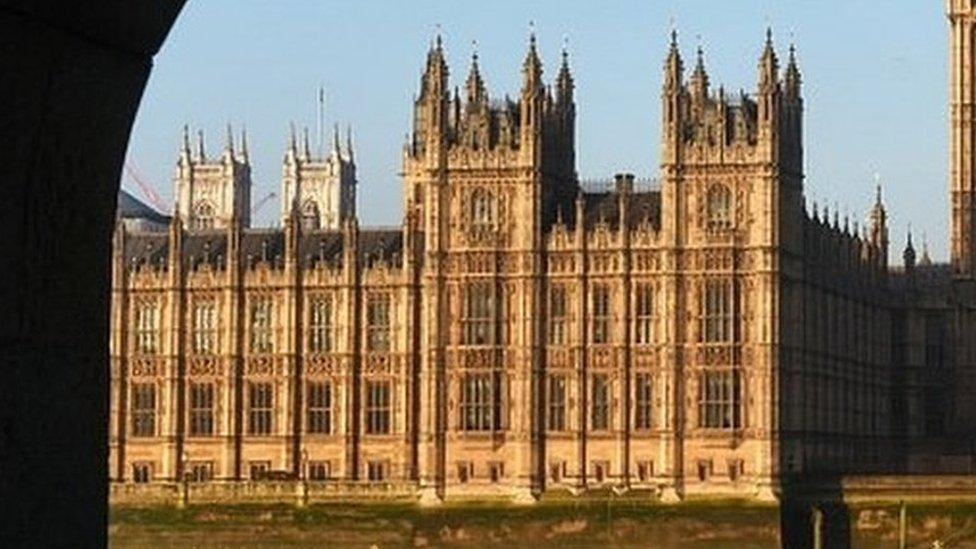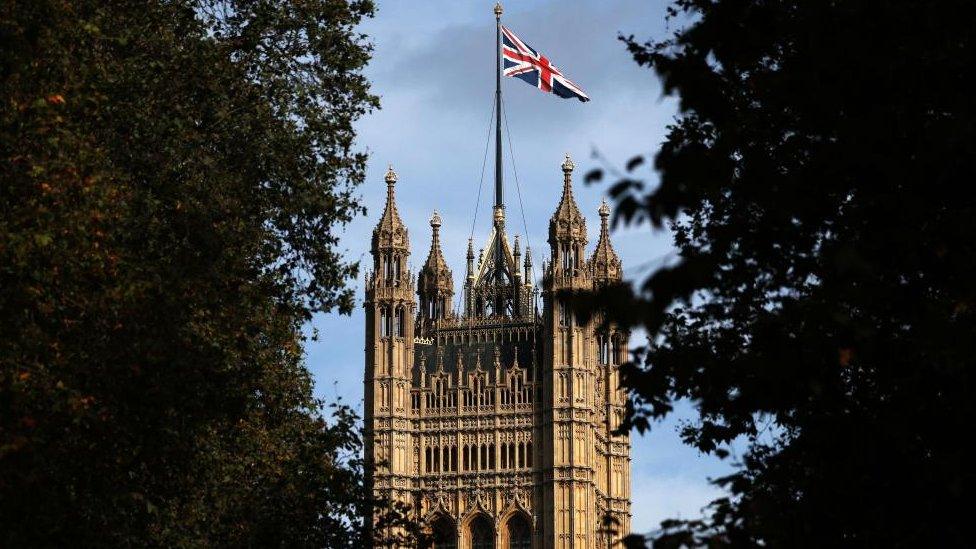James Cleverly refuses to say if he raised Parliament spy claim with China
- Published
Watch: We do not comment on intelligence issues - Cleverly
Foreign Secretary James Cleverly has refused to say whether he spoke to the Chinese government about a researcher in Parliament who was arrested on suspicion of spying for China.
Mr Cleverly said both he and the prime minister had spoken to Chinese leaders about "interference in our democracy".
But, asked if he raised the allegations with Beijing, he said he would not comment on "security related matters".
The researcher has said he is "completely innocent".
Last weekend, the Metropolitan Police confirmed that two men had been arrested in March under the Official Secrets Act.
Sources have told the BBC that one of the men had been a parliamentary researcher involved in international affairs issues.
Throughout the interview, the foreign secretary said repeatedly it was impossible for him to say if he had raised the specific case of the researcher on his visit to China.
The challenge for ministers is that keeping silent on the subject gives their critics room to claim that the government has not had the determination to do so.
And that could include some in their own party who are continuing to push the leadership to be more strident about China.
Senior Tory MPs - including former Prime Minister Liz Truss - have urged the government to officially designate China a "threat" - a step the government has resisted taking.
Asked about the criticism from his own party, Mr Cleverly said: "Pretending China doesn't exist is not a credible policy."
He said there were a number of issues the UK wanted to discuss with China - including its sanctioning of British parliamentarians - but this was best done through "face-to-face conversations".
Last month, Mr Cleverly became the first foreign secretary to visit China in five years.
Asked if he knew about the arrest of a parliamentary researcher prior to the trip, he said he would not comment.
Pressed on whether or not he had discussed the case with Chinese officials, he again refused to say.
He added that both he and Prime Minister Rishi Sunak - when he met the Chinese premier Li Qiang at the G20 summit - had raised Chinese actions which "are seeking to undermine or distort our democracy".
Earlier this week, Labour leader Sir Keir Starmer accused Mr Sunak of failing to "heed the warnings" about China and called for a "full audit" of relations between the two countries.
China has rejected the allegations, with foreign ministry spokesperson Mao Ning calling it "malicious slander".
The superpower is the UK's fourth largest trading partner but tensions between the two countries have heightened in recent years with concerns about human rights in Hong Kong - a former British colony - and China's neutral stance over Russia's invasion of Ukraine.
Related topics
- Published10 September 2023

- Published11 September 2023
